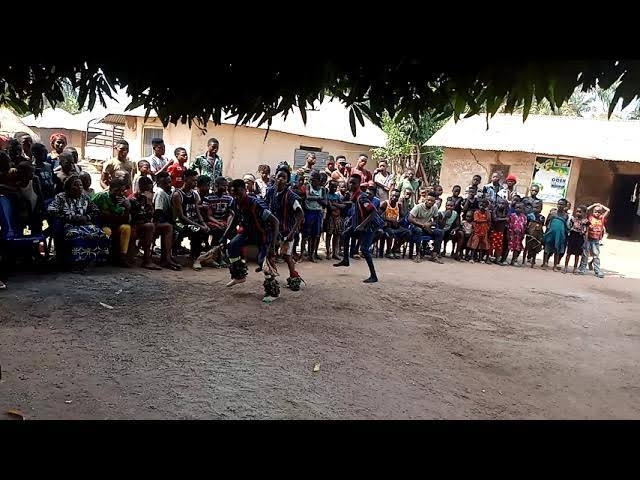

THE BURIAL
Onah Kingsley@kingsleyonah599198
1 year ago
I didn’t want to step out of the house that evening, yet, I could not afford staying at home all alone either. Everyone, I mean 80% of the entire village was going to gather at the burial ceremony. Somehow, these villagers always have occasions to attend. People often wed and dedicate their babies; the New Yam Festival comes annually; churches, of course, will always have one reason or the other to dance and rejoice; but none of these is as popular and ground-shaking as the burial ceremonies.
Burial ceremonies are the most common social functions for the Igede people. Once a person dies, whether he/she is your close acquaintance or not, you already have a function to attend. It is tragic when a youth dies. More tragic when he or she is a rich benefactor. And no one would naturally wish another person dead, except an Oluwha, a witch. But after the initial shock and maybe tears, at the news of death, it becomes business as usual. Both professional and unprofessional mourners will be there on the day of burial with different shades of mourning tones, some tearful, others dry.
Conventionally, the whole village is obligated to pass a condolence message to the family of the deceased. Failure to do so will either warrant an undesirable label or serious character assassination. But I felt that night that I could be exonerated from this complicated system of social give-and-take. After all, I’m more or less a stranger, though not by blood_the same blood flows within us by reason of common ancestry. Yet distance, mindset, and priority separate us into different worlds.
I was never interested in this tribal Osusu. I was like a passerby alien who cannot wait to return to his base. However, curiosity got the best of me, and casually adorned, I took an evening stroll.
The exchange of pleasantries, shaking hands with childhood friends and rivals-turned-friends-by-time, the journey down the memory lanes in an attempt to recall familiar faces… It was an embarrassingly enjoyable evening. But I had only one major interest: the beautiful heaven-rending and soul-searching burial songs, and the accompanying Igede traditional Ogirinye dance. The Igede culture is anything but boring.
But I knew I had to wait for a few more hours. The corpse had just arrived from the mortuary and the general mood is too somber for any form of energetic display. The normal pattern is; first, the people come crying or sober, wailing the dead; then after a while, the music band will begin to change the atmosphere by introducing songs of hope, comfort, and assurance that the deceased is now resting in the bosom of the Lord. Eventually, the focus will be shifted from the dead to those alive, and whatever song is raised at this time will be sung with such pace and excitement that by the time the hired dancers, in their scanty traditional attire, jump on the stage, you would have forgotten where you are and why you are there.
